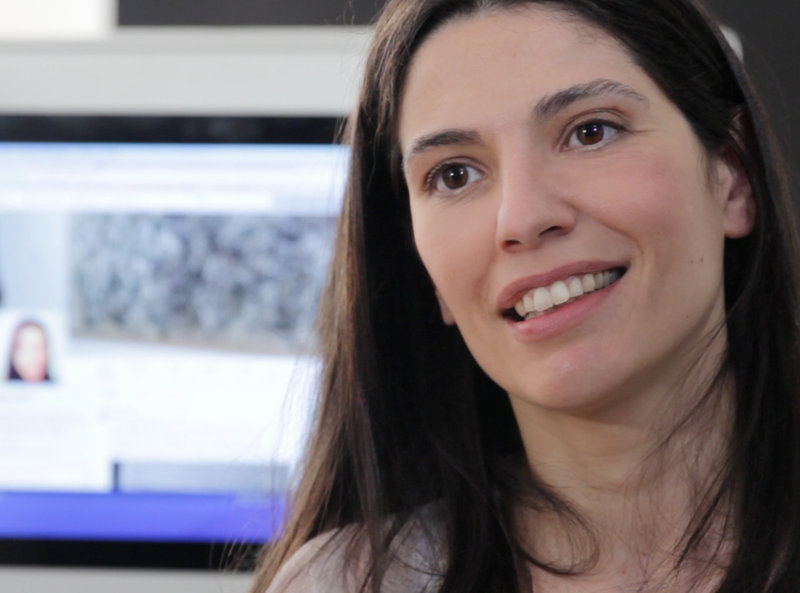In this streaming war, is Netflix the Empire? If so, who would be the Rebels of the audiovisual galaxy?
Rather than the Empire, Netflix is the driving force behind a new model. It’s like when Doc Brown in Back to the Future goes back in time to get Marty. When he warns him that there isn’t enough road, the Doc replies: “Where we’re going we don’t need roads.” Netflix was the first to believe in the flying Delorean [the digital business] and created a new way of understanding entertainment. It’s an empire in terms of market, as it has 180 million subscribers worldwide and is present in 190 countries, but the streaming war has reorganised interests and relying on third-party content is hurting it. Luckily it knew how to start its own production. Disney, Warner Media, HBO Max, Peacock already have a lot of their own content, but they don’t have market share and enough original content. Apple is in another kind of business.
Who will survive this war?
I’m not optimistic about more new platforms. Either they’re global or not profitable, with Filmin an exception because it has a specific niche. The future is in mergers of large corporations and knowing who will buy Netflix.
Meanwhile, it’s like a dream come true for film and series fans.
The positive thing is the wide array of on offer. In addition, it generates more consumption, often of high quality, and gives the viewer a sense of empowerment, controlling what they want to see at their own pace. It’s also an unprecedented technological adaptation that allows us to access content from any device.
We’ve gone from the global internet village to being shipwrecked on our digital islands, the book says.
Totally! But it’s funny how some platforms are making apps like Amazon’s Watch Party, where you can enjoy shared viewing. It’s the concept of life TV applied to fiction, the fiction we no longer watch on conventional TV but where we like to see the series or the programme with another person. This survives in the age of hyper-personalised TV, the TV of the individual, which has isolated us from the collective experience of watching TV.
Netflix has atomised the concept of classic genres. It’s categorised 80,000 algorithmically-generated microgenres and detected 2,000 taste communities.
It’s a massive indexing of content that has allowed them to detect the diverse approaches adopted by viewers. For example, you may find House of Cards because you like political drama, or because you like fiction with empowered women. Netflix saw that if it put the series in a single genre it closed doors and instead it opened windows that increase the number of views and possible audiences. They don’t care who you are, just what you like. What big data reveals is that we’re similar and driven by standardised consumption habits.
We look at screens continuously, but we know they are looking back at us. Are we in an episode of Black Mirror?
Of course! As I was saying, it’s a war for data. Businesses realise that if the third parties [Netflix] to whom they gave their content learnt from the data from that content, they can now better optimise what they make when it comes to producing it. Everything is a battle for data. And whoever has the data has the power. What these companies do is build a data empire or aspire to what Netflix has been able to do.
“Every day we leave home with a portable TV in our pocket.” Our dependence on technology is amazing.
Comfort is our new dependency. We used to adapt to the media and now it’s the other way around, the media adapts to our needs. This has led to a threshold of demand in which companies know that if they don’t respond quickly the user will go elsewhere. We’ve gone from monopoly and rigidity to oligopoly and flexibility. It’s also a kind of prison, a crystal palace that we’re locked up in. The platforms develop strategies with a single goal: to get us to spend as many hours on them as possible. As in the Platonic myth: only when we’re aware of the reflection will we be able to escape the cave, which means leaving our mobile phone at home.
People no longer read, they just look at their mobile phones.
Statistically, mobile phone consumption is growing and is expected to reach 100 minutes a day. The experience is less structured. I follow series on my mobile, but you have to adapt to the context, to be prepared for constant interruptions. Usually users prefer large screens and an intimate atmosphere to watch programmes or series that need more concentration and use mobiles for more informal content.
When will a Spartacus appear to set us slaves free?
That’s hard, especially with new generations growing up in this algorithmic culture. It’s all a matter of education and individual freedom, of understanding the side effects and diversifying what’s on offer. If you allow the platforms to choose for you and don’t exercise any active choice, your critical ability will be affected.
Have we changed television or has television changed us?
It’s the chicken and egg debate. With our habits we give information to TV, and platforms know the content they have to give us because we give them the information. It’s an exercise in system-user feedback.
Young people don’t watch conventional TV. Are they the collateral damage of war?
Conventional TV is not dead, not by a long shot. It’s consolidating genres that work for it, programmes that generate viewers and a collective experience, such as Masterchef, La Voz, OT, sports broadcasts..., which have plenty of life in them. I wish they were more versatile, that they’d use more informative formulas, and stop showing so much junk.
interview media

